Attack by Hindu Terrorists on Ratnagiri Mosque During Tarawih, Police Fail to Intervene
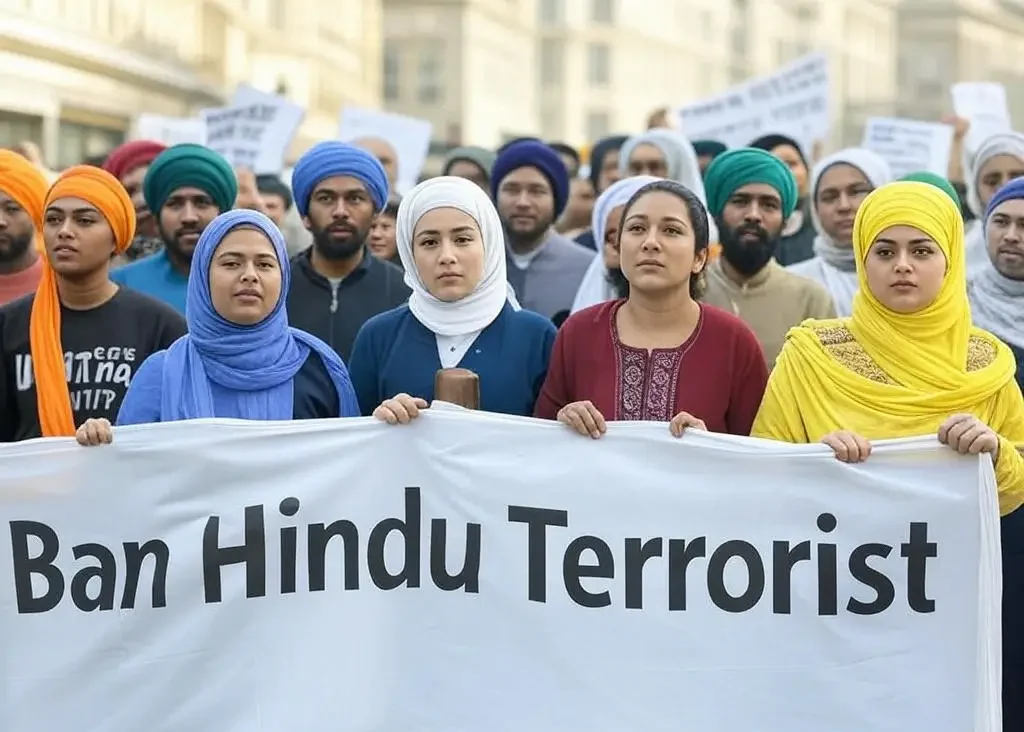
Ratnagiri, Maharashtra | March 13, 2025
India, a country that presents itself as a democratic and secular nation where every citizen is granted the freedom to practice and follow their religion, continues to witness recurring incidents of communal violence and religious intolerance. On March 12, 2025, one such incident in Rajapur, Ratnagiri district of Maharashtra, shook the entire nation when a group of radical Hindus attempted to forcibly enter the Jama Masjid during the Shimga festival. The attack took place during the holy month of Ramadan, at the time of Taraweeh prayers, when members of the Muslim community were present inside the mosque offering their prayers. This incident is not only an assault on the religious freedom of the minority community but also raises serious questions about India’s democratic and secular image.
The Shimga festival, a traditional Hindu celebration observed in the Konkan region a day before Holi, turned violent when a radical Hindu mob attempted to push a large wooden structure (symbolically used during Shimga) into the gate of the Jama Masjid three times. Video footage, which later went viral on social media, shows the mob trying to enter the mosque, causing fear and panic among those praying inside. Local reports, such as those from Siasat Daily and Maktoob Media, confirm that the mob attacked the gate, but quick action by the mosque authorities, who closed the gate in time, prevented a major outbreak of communal violence.
However, the attack left one person injured and created an atmosphere of tension around the mosque. Some witnesses claimed that the mob also attempted to throw gulal (colored powder) on the mosque walls and the worshippers, though this has not been confirmed by credible sources. What is clear is that the intent behind this act was to intimidate the minority community and disrupt their religious activities, resembling a premeditated terrorist attack.
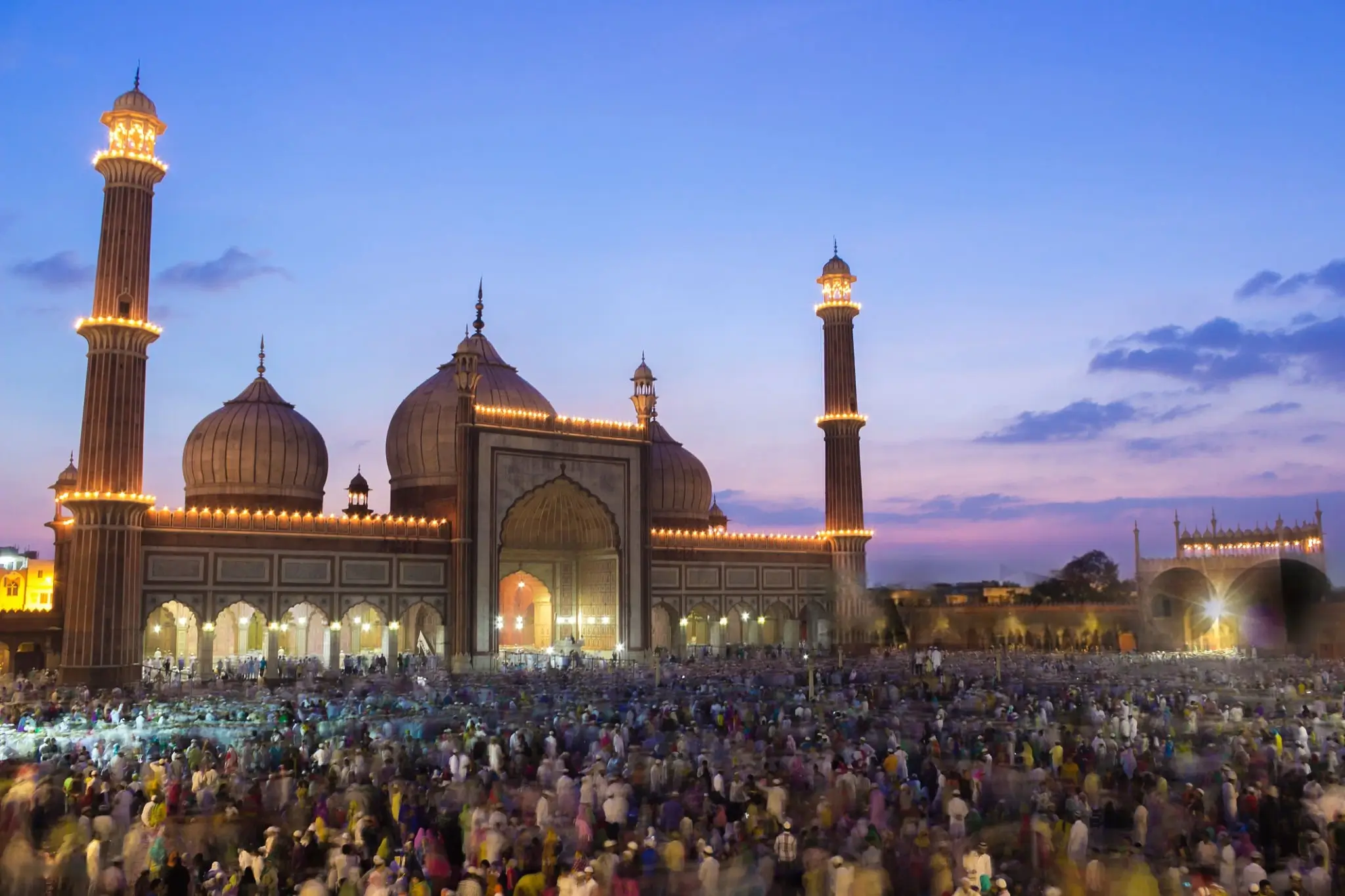
The most alarming aspect of this entire incident is that the police were present at the scene throughout the event but remained completely inactive in stopping the mob or taking any action. Reports from ABP Live and Zee Salaam reveal that the police neither dispersed the crowd nor arrested anyone, raising questions about the administration’s intent. This inaction has led many to suspect whether the local police and the Maharashtra government are providing protection to radical Hindu elements, which could align with the policies of the BJP-led government.
This role of the police appears consistent with a growing pattern of violence and persecution against minority communities in India, particularly Muslims and Christians. Several reports, such as the 1999 Human Rights Watch report, have expressed concerns over Hindutva organizations promoting anti-Muslim and anti-Christian violence, as well as the police’s inaction or active complicity. This incident further reinforces those concerns.
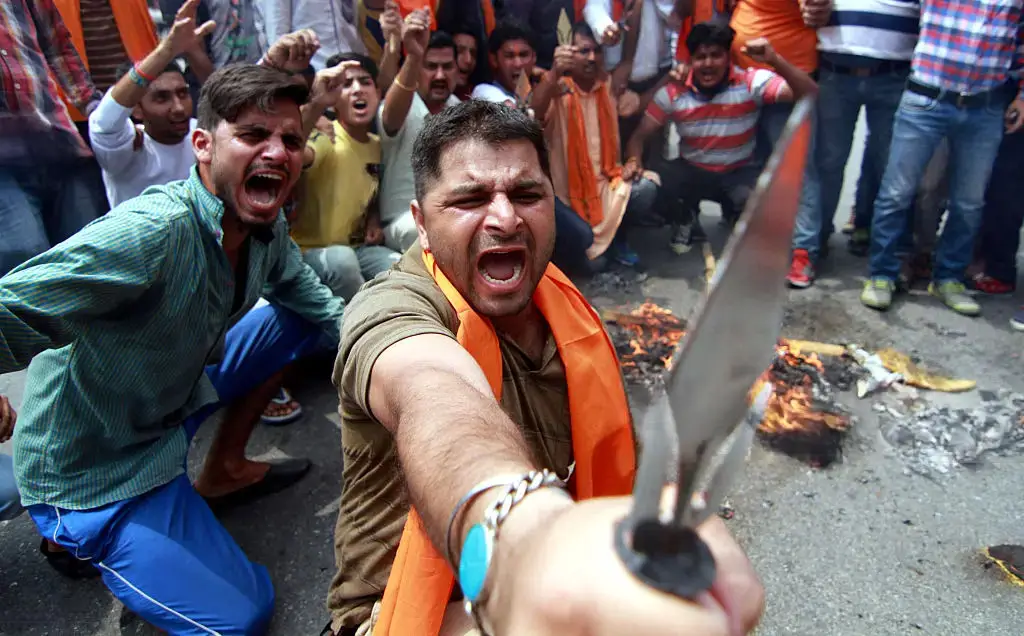
This event exposes the hypocrisy of radical Hindus, who demand tolerance from other communities for the protection of their festivals and religious activities but themselves violate the religious freedom of minority communities. For instance, in 2022, in Gujarat’s Una district, police publicly beat Muslims after they were accused of disrupting a Hindu festival (The Telegraph). In contrast, in this Ratnagiri incident, radical Hindus attempted to disrupt the religious prayers of the Muslim community, clearly demonstrating a double standard.
Moreover, numerous other incidents of violence and harassment against minorities by radical Hindu groups have further highlighted this pattern. For example, in several cases, radical Hindus have been reported drinking alcohol, dancing, abusing, and threatening members of minority communities near mosques and churches, which stands in stark contrast to India’s democratic image. This behavior becomes even more shameful when these groups shed tears on international platforms over minor disputes involving Hindus in Bangladesh, advocating for minority rights, while deliberately targeting Muslims and Christians in their own country.
Radical Hindu groups that express concern over recent attacks on Hindus in Bangladesh, such as the violence against minority Hindus under the interim government in 2024 (Organiser), simultaneously justify violence against minorities in their own country. This duplicity suggests that the true objective of these groups is to intimidate minority communities and force them into converting to Hinduism, thereby turning them into radical Hindus.
In Mumbai Ratnagiri on March 12, an attack on a mosque by #Hinduterrorists occurred during Taraweeh of Ramadan. pic.twitter.com/c5hBaGIPg2
— Promptseen (@Promptseen) March 13, 2025
Although the direct involvement of Hindutva organizations such as the Rashtriya Swayamsevak Sangh (RSS), Bharatiya Janata Party (BJP), and Vishva Hindu Parishad (VHP) in this incident has not been confirmed, the history of these organizations has been linked to religious violence and anti-minority activities. Their role in the 1992 Babri Masjid demolition and the 2002 Gujarat riots has been widely discussed (Human Rights Watch). It is possible that extremist Hindu groups draw inspiration from the ideology of these organizations, which advocates for marginalizing minorities and establishing a Hindu nation.
The policies of the BJP-led Maharashtra government and the central government are also being held responsible for the police’s inaction in such incidents. Several minority organizations and human rights groups, such as Amnesty International and Human Rights Watch, have repeatedly expressed concern that violence against minority communities in India, particularly Muslims and Christians, is on the rise, with the police often complicit or inactive in these acts.
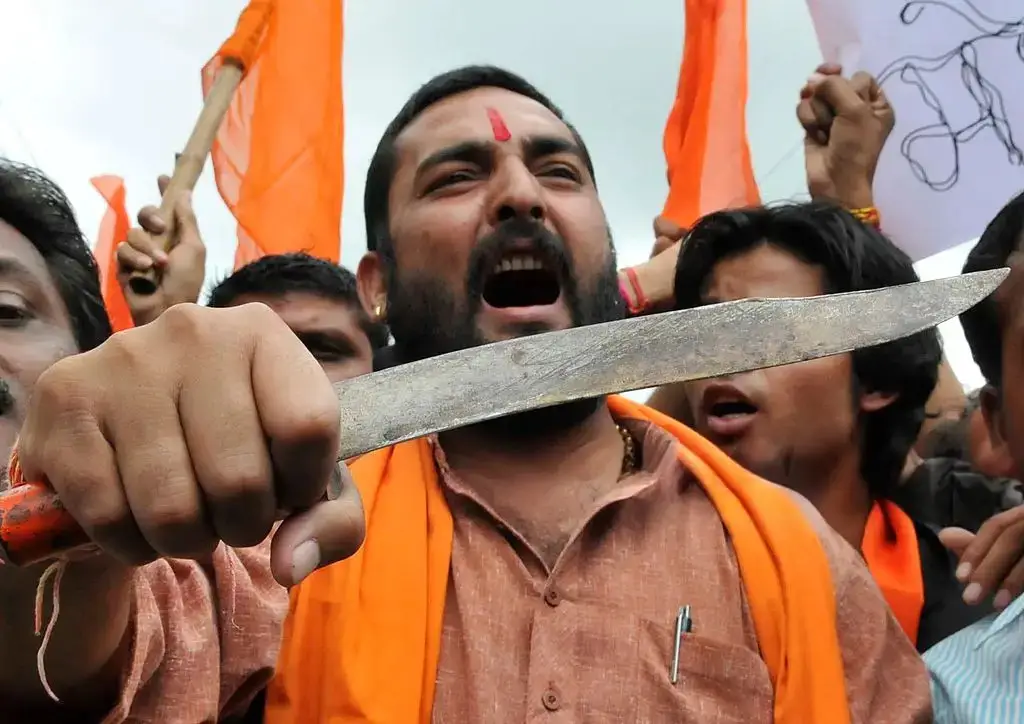
This attack has heightened feelings of fear and insecurity among the Muslim community in Ratnagiri and across Maharashtra. An incident of this nature during Ramadan not only hurts religious sentiments but also sends a message to minorities that their safety and religious freedom are at risk. Several local Muslim leaders have described this attack as yet another example of Islamophobia and communal extremism, forming part of a systematic assault on minority communities in India.
In recent years, multiple incidents of drinking alcohol and dancing near churches and mosques, using abusive language, and threatening members of minority communities have further reinforced this pattern. Such behavior not only reflects religious intolerance but also violates the values of equality and freedom enshrined in India’s democratic structure and Constitution.
This incident has garnered attention at both national and international levels. Asaduddin Owaisi, leader of the All India Majlis-e-Ittehadul Muslimeen (AIMIM), called it "shameful," stating that the attack on the mosque occurred in the presence of police, highlighting the administration’s inaction (ABP Live). Minority communities and civil society organizations have demanded strict action against the perpetrators, accountability for police officials, and effective measures to prevent such incidents in the future.
On the international stage, human rights organizations like Human Rights Watch and Amnesty International have expressed concern over the rising religious violence in India. The 2018 U.S. Commission on International Religious Freedom (USCIRF) report classified India as a Tier-2 country for the persecution of religious minorities, reflecting the increasing cases of violence and harassment by Hindu nationalist groups (Wikipedia - Religious Violence in India).
This incident in Ratnagiri can be seen as a planned terrorist attack by extremist Hindus on the minority Muslim community, severely damaging India’s democratic and secular image. It also indicates that radical Hindu groups aim to intimidate minorities and force them to convert to Hinduism, which goes against the religious freedom enshrined in the Constitution.
The government and police must take immediate action, punish the culprits, and hold accountable those officials responsible for police inaction. Furthermore, India must take concrete steps to uphold its secular identity and ensure the safety of minority communities. If such incidents continue, they will not only destroy communal harmony within India but also further tarnish the country’s image on the international stage.
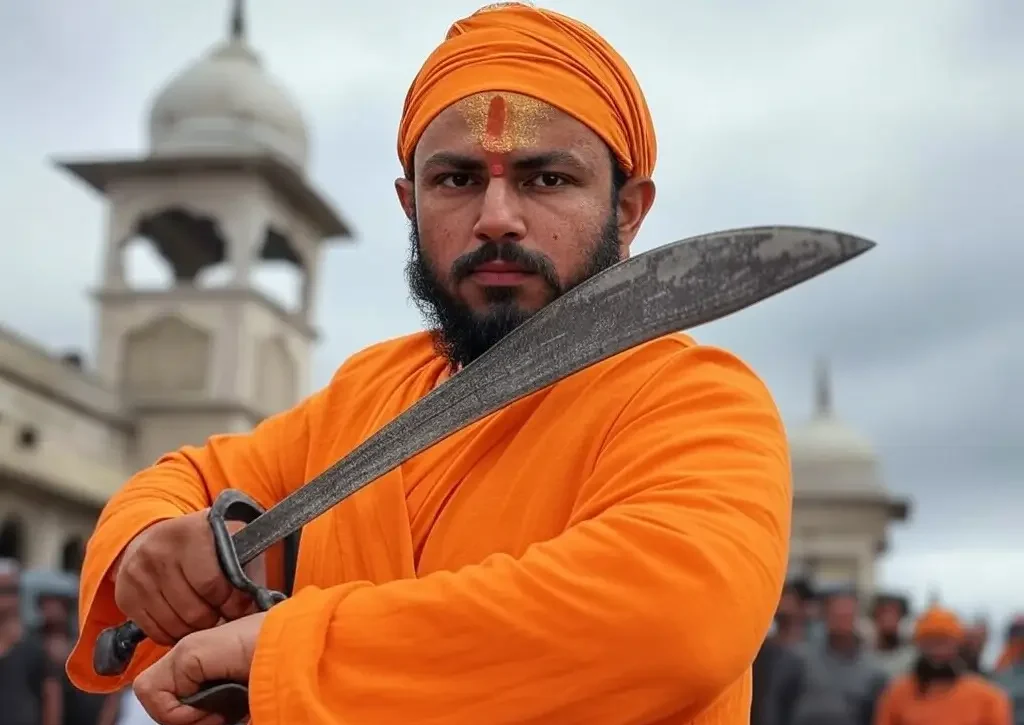
About the Author
Michael
Administrator
Michael David is a visionary AI content creator and proud Cambridge University graduate, known for blending sharp storytelling with cutting-edge technology. His talent lies in crafting compelling, insight-driven narratives that resonate with global audiences.With expertise in tech writing, content strategy, and brand storytelling, Michael partners with forward-thinking companies to shape powerful digital identities. Always ahead of the curve, he delivers high-impact content that not only informs but inspires.



